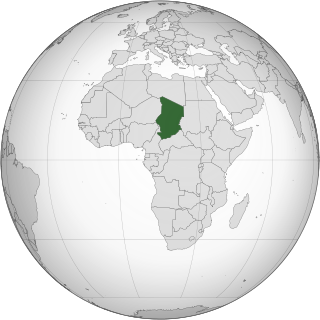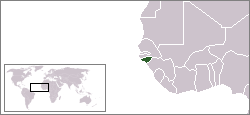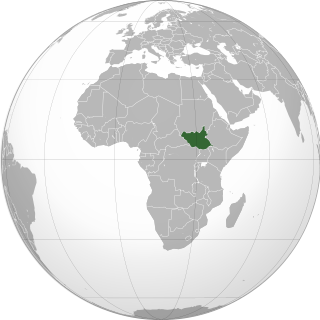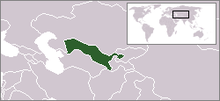Sex and the law deals with the regulation by law of human sexual activity. Sex laws vary from one place or jurisdiction to another, and have varied over time. Unlawful sexual acts are called sex crimes.

Lesbian, gay, bisexual, and transgender (LGBT) people in Chad face legal challenges not experienced by non-LGBTQ residents. Both male and female forms of same-sex sexual activity are illegal in the country. Before the new penal code took effect in August 2017, homosexual activity between adults had never been criminalised. There is no legal protection against discrimination based on sexual orientation and gender identity.

Lesbian, gay, bisexual, and transgender (LGBT) people in Mali face legal and societal challenges not experienced by non-LGBTQ residents. Although same-sex sexual activity is not illegal in Mali, LGBT people face widespread discrimination among the broader population. According to the 2007 Pew Global Attitudes Project, 98 percent of Malian adults believed that homosexuality is considered something society should not accept, which was the highest rate of non-acceptance in the 45 countries surveyed. The Constitution of Mali has outlawed same-sex marriage since 2023.

Lesbian, gay, bisexual, and transgender (LGBTQ) people in Ghana face severe challenges not experienced by non-LGBT residents. Sexual acts between males have been illegal as "unnatural carnal knowledge" in Ghana since the colonial era. The majority of Ghana's population hold anti-LGBT sentiments. Physical and violent homophobic attacks against LGBT people occur, and are often encouraged by the media and religious and political leaders. At times, government officials, such as police, engage in such acts of violence. Young gay people are known to be disowned by their families and communities and evicted from their homes. Families often seek conversion therapy from religious groups when same-sex orientation or non-conforming gender identity is disclosed; such "therapy" is reported to be commonly administered in abusive and inhumane settings.
Section 377 is a British colonial penal code that criminalized all sexual acts "against the order of nature". The law was used to prosecute people engaging in oral and anal sex along with homosexual activity. As per a Supreme Court Judgement since 2018, the Indian Penal Code Section 377 is used to convict non-consensual sexual activities among homosexuals with a minimum of ten years’ imprisonment extended to life imprisonment. It has been used to criminalize third gender people, such as the apwint in Myanmar. In 2018, then British Prime Minister Theresa May acknowledged how the legacies of such British colonial anti-sodomy laws continue to persist today in the form of discrimination, violence, and even death.

Lesbian, gay, bisexual and transgender (LGBT) people in the United Arab Emirates face discrimination and legal challenges. Homosexuality is illegal in the United Arab Emirates (UAE) and under the federal criminal provisions, consensual same-sex sexual activity is punishable by imprisonment; extra-marital sexual activity between persons of different sexes is also illegal. In both cases, prosecution will only be brought if a husband or male guardian of one of the participants makes a criminal complaint. The penalty is a minimum of six months imprisonment; no maximum penalty is prescribed, and the court has full discretion to impose any sentence in accordance with the country's constitution.

Lesbian, gay, bisexual, and transgender (LGBT) people in Ethiopia face significant challenges not experienced by non-LGBT residents. Both male and female types of same-sex sexual activity are illegal in the country, with reports of high levels of discrimination and abuses against LGBT people. Ethiopia has a long history of social conservatism and same-sex sexual activity is considered a cultural taboo.

Lesbian, gay, bisexual, and transgender (LGBT) people in Burundi face legal challenges not experienced by non-LGBTQ citizens. While never criminalized before 2009, Burundi has since criminalized same-sex sexual activity by both men and women with a penalty up to two years in prison and a fine. LGBT persons are regularly prosecuted and persecuted by the government and additionally face stigmatisation among the broader population.

Lesbian, gay, bisexual, and transgender (LGBT) people in the Gambia face significant challenges not experienced by non-LGBT residents. Same-sex sexual activity is illegal for both men and women in the Gambia. Criminalisation commenced under the colonial rule of the British. The 1933 Criminal Code provides penalties of prison terms of up to fourteen years. In 2014, the country amended its code to impose even harsher penalties of life imprisonment for "aggravated" cases. The gender expression of transgender individuals is also legally restricted in the country. While the United States Department of State reports that the laws against homosexual activity are not "actively enforced", arrests have occurred; the NGO Human Rights Watch, reports regular organised actions by law enforcement against persons suspected of homosexuality and gender non-conformity.

Lesbian, gay, bisexual, and transgender (LGBT) persons in Turkmenistan face active discrimination and stigmatization compared to non-LGBT residents. Turkmenistan is one of the only two post-Soviet states where male homosexual activity remains criminalised, along with Uzbekistan.

Lesbian, gay, bisexual, and transgender (LGBT) people are generally discriminated against in Libya. Homosexual activity is criminalised for both men and women within Libya, and homophobic attitudes are prevalent throughout the country. Since the fall of the Gaddafi regime in 2011, the discriminatory laws regarding homosexuality in Libya remain unchanged.

Lesbian, gay, bisexual, and transgender (LGBT) people in Somalia face severe challenges not experienced by non-LGBTQ residents. Consensual same-sex sexual activity is illegal for both men and women. In areas controlled by al-Shabab, and in Jubaland, capital punishment is imposed for such sexual activity. In other areas, where Sharia does not apply, the civil law code specifies prison sentences of up to three years as penalty. LGBT people are regularly prosecuted by the government and additionally face stigmatization among the broader population. Stigmatization and criminalisation of homosexuality in Somalia occur in a legal and cultural context where 99% of the population follow Islam as their religion, while the country has had an unstable government and has been subjected to a civil war for decades.

Lesbian, gay, bisexual, and transgender (LGBT) people in the Ivory Coast face legal challenges not experienced by non-LGBTQ residents. Same-sex sexual activity is legal for both men and women in Ivory Coast, but same-sex couples and households headed by same-sex couples are not eligible for the same legal protections available to opposite-sex couples.

Lesbian, gay, bisexual, and transgender (LGBT) people in Zambia face significant challenges not experienced by non-LGBTQ residents. Same-sex sexual activity is illegal for both men and women in Zambia. Formerly a colony of the British Empire, Zambia inherited the laws and legal system of its colonial occupiers upon independence in 1964. Laws concerning homosexuality have largely remained unchanged since then, and homosexuality is covered by sodomy laws that also proscribe bestiality. Social attitudes toward LGBT people are mostly negative and coloured by perceptions that homosexuality is immoral and a form of insanity. However, in recent years, younger generations are beginning to show positive and open minded attitudes towards their LGBT peers.

A sodomy law is a law that defines certain sexual acts as crimes. The precise sexual acts meant by the term sodomy are rarely spelled out in the law, but are typically understood and defined by many courts and jurisdictions to include any or all forms of sexual acts that are illegal, illicit, unlawful, unnatural and immoral. Sodomy typically includes anal sex, oral sex, manual sex, and bestiality. In practice, sodomy laws have rarely been enforced to target against sexual activities between individuals of the opposite sex, and have mostly been used to target against sexual activities between individuals of the same sex.

Lesbian, gay, bisexual, and transgender (LGBT) people in Guinea-Bissau face legal challenges not experienced by non-LGBTQ residents. Same-sex sexual activity is legal in Guinea-Bissau, but same-sex couples and households headed by same-sex couples are not eligible for the same legal protections available to opposite-sex couples.

Lesbian, gay, bisexual, and transgender (LGBT) people in Mongolia face legal and social challenges not experienced by non-LGBT people, though there have been substantial improvements since the 1990s. Homosexuality was criminalised in Mongolia in 1961 through its Criminal Code. Following the Mongolian Revolution of 1990 and the peaceful transition to a democracy, homosexuality was legalised and awareness about LGBT people has become more prevalent. Hate crimes on the basis of sexual orientation and gender identity result in additional legal penalties. Hate speech based on these two categories has been outlawed in the country since 1 July 2017. Households headed by same-sex couples are, however, not eligible for the same legal protections available to opposite-sex couples.

Lesbian, gay, bisexual, and transgender (LGBT) people in South Sudan face legal and societal challenges not experienced by non-LGBTQ residents. Male same-sex sexual activity is illegal and carries a penalty of up to ten years' imprisonment. Active enforcement of the law is not pursued by authorities: No prosecutions are known to have occurred since South Sudan gained its independence in 2011. LGBT persons are met with abuse and discrimination from agents of the government and additionally face stigmatisation among the broader population.

The majority of the countries of the Commonwealth of Nations, formerly known as the British Commonwealth, still criminalise sexual acts between consenting adults of the same sex and other forms of sexual orientation, gender identity and expression. Homosexual activity remains a criminal offence in 29 of the 56 sovereign states of the Commonwealth; and legal in only 26.

Capital punishment as a criminal punishment for homosexuality has been implemented by a number of countries in their history. It is a legal punishment in several countries and regions, all of which have sharia-based criminal laws, except for Uganda.



















